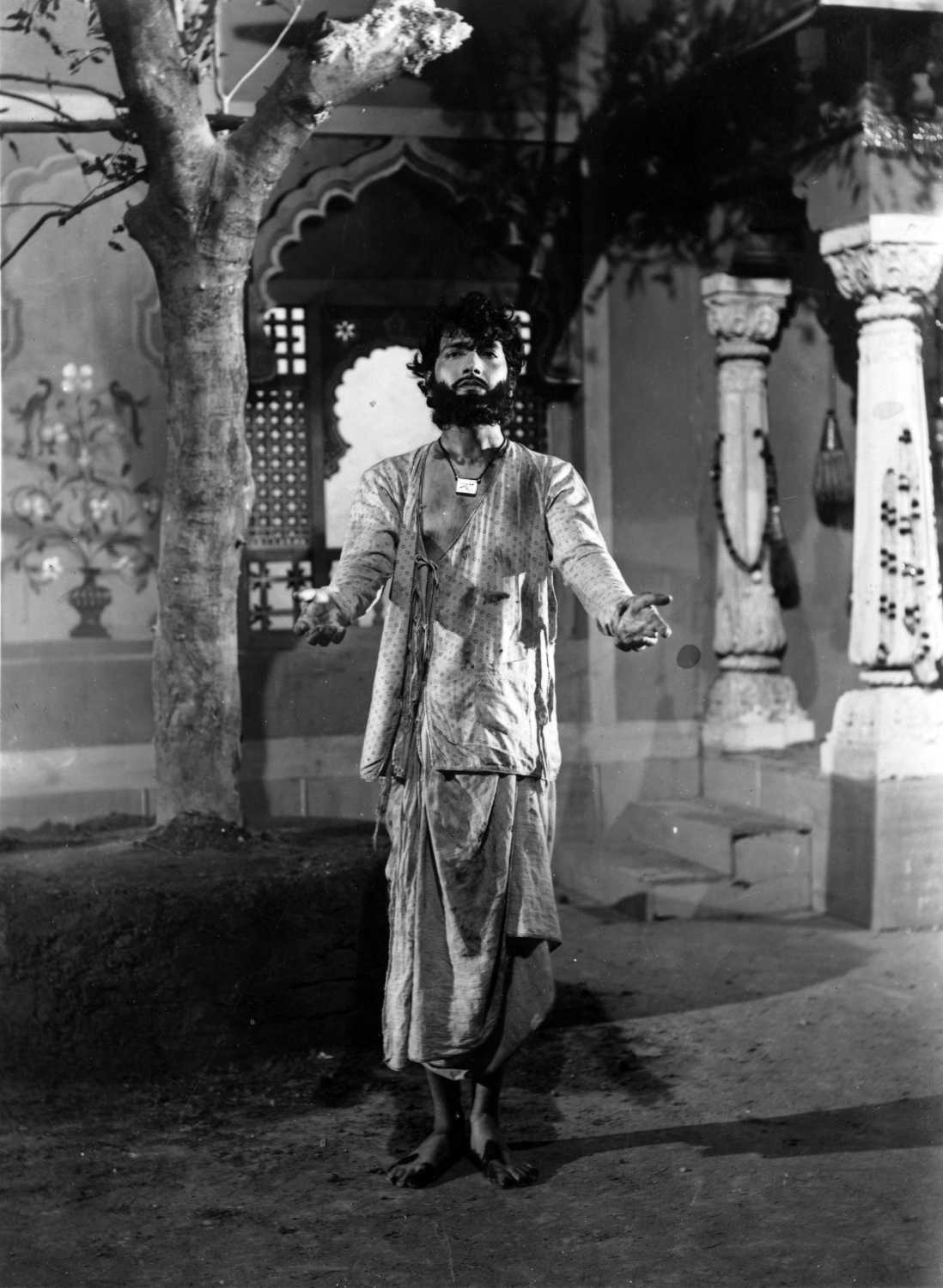Before Guru Dutt, Amitabh Bachchan and Ranbir Kapoor portrayed the impassioned artist consumed by his craft, there was Bharat Bhushan. The actor whose life took on the tragedy of characters he portrayed, died 25 years ago on this day (27 January) in 1992.


Shriram Iyengar
In 1952, Mohammed Rafi, Naushad and Shakeel Badayuni composed the famous bhajan 'Man Tadpat Hari Darshan Ko Aaj'. On screen, a dishevelled, young man walked in a daze singing the song. This was Bharat Bhushan's big moment on Indian film screens. Playing the legendary singer Baiju Bawra in Vijay Bhatt's mythological epic. Initially touted as a flop, the film would go on to celebrate a golden jubilee. Women across the country had a new love — Bharat Bhushan. In a world of sophisticated, clean, and charming gents like Dev Anand, Raj Kapoor, Dilip Kumar, Bharat Bhushan stood out. It was his boon. It was his curse.

Born into a middle-class family, Bhushan was expected to join the administrative services. Education at the prestigious Aligarh Muslim University in Lucknow followed. It was at the university that his desire for a career in the arts grew. Soon, Bharat Bhushan decided on becoming an actor much to the chagrin of his father. Coincidentally, his brother too became a producer later, owning the Ideal Studios in Lucknow. The struggle was not an easy one. He made his debut as one of the second leads in the 1941 classic, Chitralekha. But it took him another decade before he could make his mark in 1952's Baiju Bawra.

As the lovelorn poet in Baiju Bawra, Bhushan's vulnerability was unparalleled. His delicate features and pained expressions added to the allure of his character as the tragic poet-lover. It would also begin the actor's association with the image of suffering, tortured artists on screen. Basant Bahar (1956), Mirza Ghalib (1954), Sangeet Samrat Tansen (1962), Kavi Kalidas (1959) and Barsat ki Raat (1960) had him play poets or musicians. An avid reader, Bhushan had an affinity to these souls. During the prime of his success, his most precious possession was a vast library with more than a 100 books on different subjects. It is little wonder that directors found him to be the perfect conduit for their construct of the legendary poets and artists of India. He also wrote the script for films like Barsaat Ki Raat.
So suited was his personality to that of a poet that Sahir Ludhianvi says, "Once a film producer asked me for my photograph and I gave him one from my album. On seeing the photo he said: “You don’t look like a poet in it.” To this, I had only one reply. “If you want a poet’s photo,” I said, “take one of Bharat.” Ludhianvi also points out to Bhushan's ability to memorise ghazals and poems, even articles and developments in nuclear science, that point to his voracious appetite for knowledge.
Like the artists he portrayed on screen, fame was a cup of poison for Bhushan. His immediate success fuelled extravagance. At one time, the actor owned 3 of the prime bungalows in the city of Bombay. His most famous residence was on Bandra's Perry Road, now owned by another actor known for playing poets and sensitive lovers, Jeetendra. This extravagance would push him towards a tragedy of his own. By the 80s, the great actor was bankrupt and had to sell all of his bungalows to move to a lowly slum in the city. Amitabh Bachchan recalls seeing Bhushan at a bus stop once.
Bachchan writes in his blog: ' As I drove by Santa Cruz one morning for work I saw Bharat Bhushan, the great romantic heartthrob of the 50s, the hero of some of the most successful musicals of the times, standing in a queue at a bus stop! An ordinary citizen. Part of the crowd. Alone, unnoticed. No one recognizing him. No one knowing who he was.' The rise of Rajesh Khanna, Shashi Kapoor and Shammi Kapoor left no space for the delicate, sensitive hero. Bhushan was forced to work supporting roles, before eventually turning to television. When even these offers began to fade away, he took to working odd jobs. In an anecdote that mirrors Guru Dutt's Kaagaz Ke Phool, the actor reportedly took up a job as a watchman at a film studio to make ends meet.
Though accused of portraying stereotyped images, Bhushan did work with a varied range of directors. From the mythological of Vijay Bhatt to the socialist dramas of KA Abbas, the actor took on far more nuanced roles than he is given credit for. It was the changing times that he couldn't keep up with. The transient nature of fame left him helpless as it sped past him. In 1992, the great actor took a rickshaw from his home near Borivali suburb of Mumbai, alone, to go to the hospital. He died on the way. It was as tragic as the ending of some of his characters. And like in many of his films, fame and posthumous praise followed





